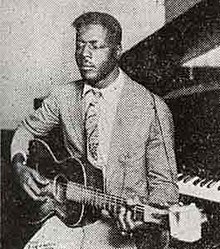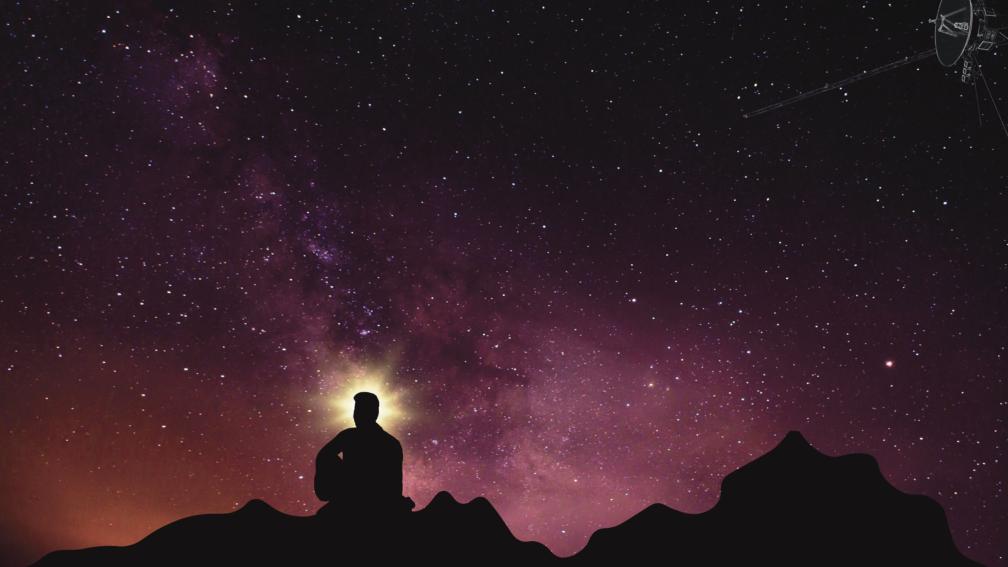In 1977, NASA launched two Voyager spacecrafts, the first of their kind ever to leave the solar system and venture into the vast, infinite space beyond. Within each of these spacecraft is a gold-plated record, a relic meant to convey to any other life-form it might encounter the entire human experience. On this record are images ranging from simple geometric shapes to complex, abstract works of art. And there are also 90 minutes of audio.
90 minutes.
90 minutes to capture all the sounds of the human species. How do you capture something so complex in sounds that might be incomprehensible to any other organism? How do you capture human emotion and convey it to something that might not even experience it?
Despite this monumental task, Carl Sagan and his team attempted to capture our sounds, our languages, and our music onto the record. Those 90 minutes are an intricate tapestry of audio from across time and space. There is a message from the UN General Secretary and greetings in 55 different languages. There is Mozart, and there is Beethoven. There are the fundamentals of sound itself, and there are those who have supposedly mastered it. Yet amongst these iconic, universal pieces of music is a blues song by a relatively unknown artist, Blind Willie Johnson. His song, ‘Dark was the Night, Cold was the Ground’, nestles amongst giants to capture one of the most integral emotions of what it means to be human, or as Carl Sagan put it, “cosmic loneliness.”
We know very little about Blind Willie Johnson. So little that there exists only one confirmed picture of him. We know he was born in 1897 in Texas and that his mother passed away shortly after. As a child, we know his stepmother blinded him by throwing lye into his eyes.
We know he then turned to playing the guitar, travelling around the state, preaching the Christian faith of which he was a devout follower. Johnson lived in poverty his entire life and struggled until the very end. When his house burned down in 1945, he had nowhere to go. So, he slept in the charred ruins where his bed once lay. Here, he contracted a disease; sources differ on whether it was pneumonia or malarial fever. When brought to the hospital, he was refused treatment. He died shortly after. His wife Angeline alleges that he was denied treatment due to his disability, while other sources say it was because he was black.
Within his discography is that very song on the Voyager Golden Record, “Dark was the Night, Cold was the Ground.” Yet it is not Johnson’s own composition. It is his three-minute adaptation of a song layered with history and meaning – a hymn sung on slave plantations, in black churches by preachers, and at funerals in the American South. Johnson’s rendition does not sing the lyrics in English or any other language. Instead, he moans in an anguish that captures and echoes the history of the song, of his own life, and the collective suffering of both. A history that is conveyed in three minutes.
It is a song that echoes our deepest vulnerability, transcending any language to convey to the great beyond the insular depths of our sorrow and loneliness. That is the song’s thesis when considered in isolation, but when we peer behind the notes into the stories that have shaped it, we see perhaps a more prescient idea of what it represents – persistence.

Our species has faced great horrors and resisted great evil to survive. We bear those scars and share them as a collective. Willie Johnson endured a profoundly racist country that not only considered him unequal to those he performed for but also looked down upon him for his disability.
Yet he persisted.
A man who had sight cruelly taken away from him created and captured a testament to our perseverance. Our sorrow and the collective loneliness that pervades our existence now hurtles through the vast expanses of space, seeing more of our universe than our species ever has.
The Voyager Golden Record was designed with longevity in mind and will likely outlast human civilisation. Our existence, however, is inherently ephemeral. We are collections of stardust that dance in sorrow for the duration of our lifespan, capable of great kindness and destruction, only to return to dust when our dance ends. But through our creativity and passion, we can create what transcends our own mortality into great, immortalised art.
In however many years, if ever, should the Voyager Golden Record meet any other civilisation, it might witness that very testament to our perseverance. Or it might never do so and keep exploring the universe in the darkest of nights, and the coldest of spaces, forever cosmically lonely.
Originally published in Woroni Vol. 72 Issue 6 ‘Dive’
Think your name would look good in print? Woroni is always open for submissions. Email write@woroni.com.au with a pitch or draft. You can find more info on submitting here.
We acknowledge the Ngunnawal and Ngambri people, who are the Traditional Custodians of the land on which Woroni, Woroni Radio and Woroni TV are created, edited, published, printed and distributed. We pay our respects to Elders past and present. We acknowledge that the name Woroni was taken from the Wadi Wadi Nation without permission, and we are striving to do better for future reconciliation.
